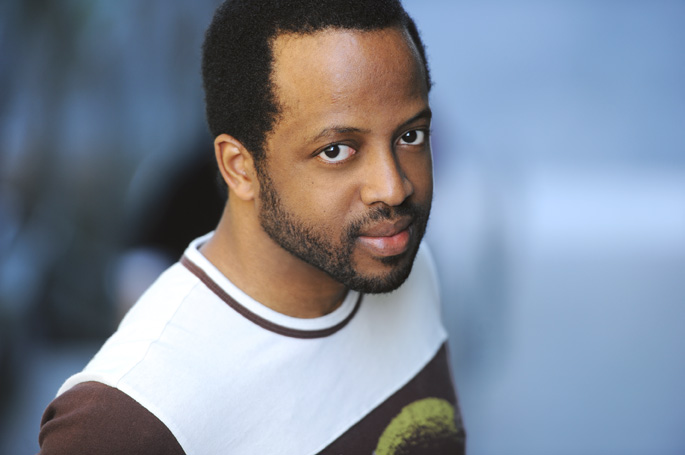Jordan Peele's 'US' Feels Like a Cerebral Thriller!
written by Donaldo Prescod
After seeing Jordan Peele’s sophomore film Us (the second in his series of social thrillers, with the promise of three more similarly-themed films to come), you may exit the theater with your head spinning, searching for answers. But I recommend that you allow yourself to sit with those thoughts for a few hours, or days, even. Then try to process this film the way you would while decoding the otherworldly, slightly askew films of Lynch, Kubrick, and Aronofsky, and it starts to feel like a cerebral thriller (a new term I hope I just coined). Think: abstract and not literal, moody, quirky and offbeat, a genre which is great for black filmmakers, as we hopefully graduate more and more to audiences accepting our kind of strange.
Before I dive into my thoughts, theories, and feels, I need to geek out for a moment and mention a different kind of tethering that I noted (as opposed to the kind described in the film). Elizabeth Moss: when I first heard about the plot for Us and saw her in the trailer, immediately I thought, “Wait! She was in a similar film a few years ago! Will the world of Charlie McDowell’s The One I Love, which tackled the same idea of dealing with your doppelgänger, intertwine with the world of Us, like the interconnectedness of a Stephen King novel?” That’s probably wishful thinking for us film nerds. Still, it’s interesting to see Moss in both of these films which address the subject of doubles, though McDowell took a simpler approach to literally facing oneself, whereas Peele expanded on this idea with great depth and integrated the element of horror.
I had a visceral reaction within the first ten minutes of the film. Having grown up in the Santa Cruz area, I could relate to frequent family trips to the boardwalk. I never wanted to get on that rickety-sounding ride The Big Dipper, which always seemed like it was made up of barely-held-together old wood, though it was probably safe. But I do miss the corn dogs, and mastering the art of ski ball like a Kung Fu prodigy. And one can never forget the boardwalk at night. For starters, it’s creepy, just like how it was portrayed in the movie. It is especially eerie when that layer of fog rolls in and coats the beach, creeping onto the lip of the boardwalk, thus beginning the terror soon to befall young Adelaide when she meets her doppelgänger.
This film is wrestling with many themes, but overcoming trauma and PTSD was always at the forefront of Lupita Nyong’os’ performance. All the acting was solid but this film has her mark all over it. At every turn you saw a wave of emotions wash over her face: fear and rage as she tried to suppress a deep, dark secret; trying to maintain her composure as a loving mother and wife while keeping that secret bottled up. Then there was her performance as her other self: creepy, raspy, unforgettable voice combined with the rigid movements of a homicidal maniac. The physical and emotional depth she displayed was layered, and it was exciting to see her pull from a whole basket of acting skills we’ve never seen her demonstrate before.
Now back to the trauma: an incident occurs ten minutes into the film which arrests a child’s development, giving rise to her end goal as an adult, when she and the rest of her ‘tethered’ family and friends surface to kill the undeserving. And as referenced several times in the film, Jeremiah 11:11 says:
Therefore thus saith the Lord, Behold, I will bring evil upon them, which they shall not be able to escape; and though they shall cry unto me, I will not hearken unto them.
After evil was brought upon, the tethered joined hands to complete the Hands Across America mission. Though a bit strange to behold, it represents one of the last, happy moments embedded in young Adelaide’s mind before her traumatic incident. And lastly, I have to give a huge shout out to Peele for taking a 90’s West Coast classic by the Luniz, slowing the beat down and making it creepy as fuck.
Us is definitely that kind of film with replay value, where a new mystery is discovered in each viewing so that as we gradually dissect more and more of it, lets us appreciate the unconventional, weirdo aspect of an instant cult classic.
Donaldo Prescod is an award winning filmmaker from Boston, Mass and currently based in Brooklyn. His film Black People Are Dangerous won Best Narrative Short at the Urban Film Festival and the Honorable Mention Award at the 10th Annual Bushwick Film Festival.




